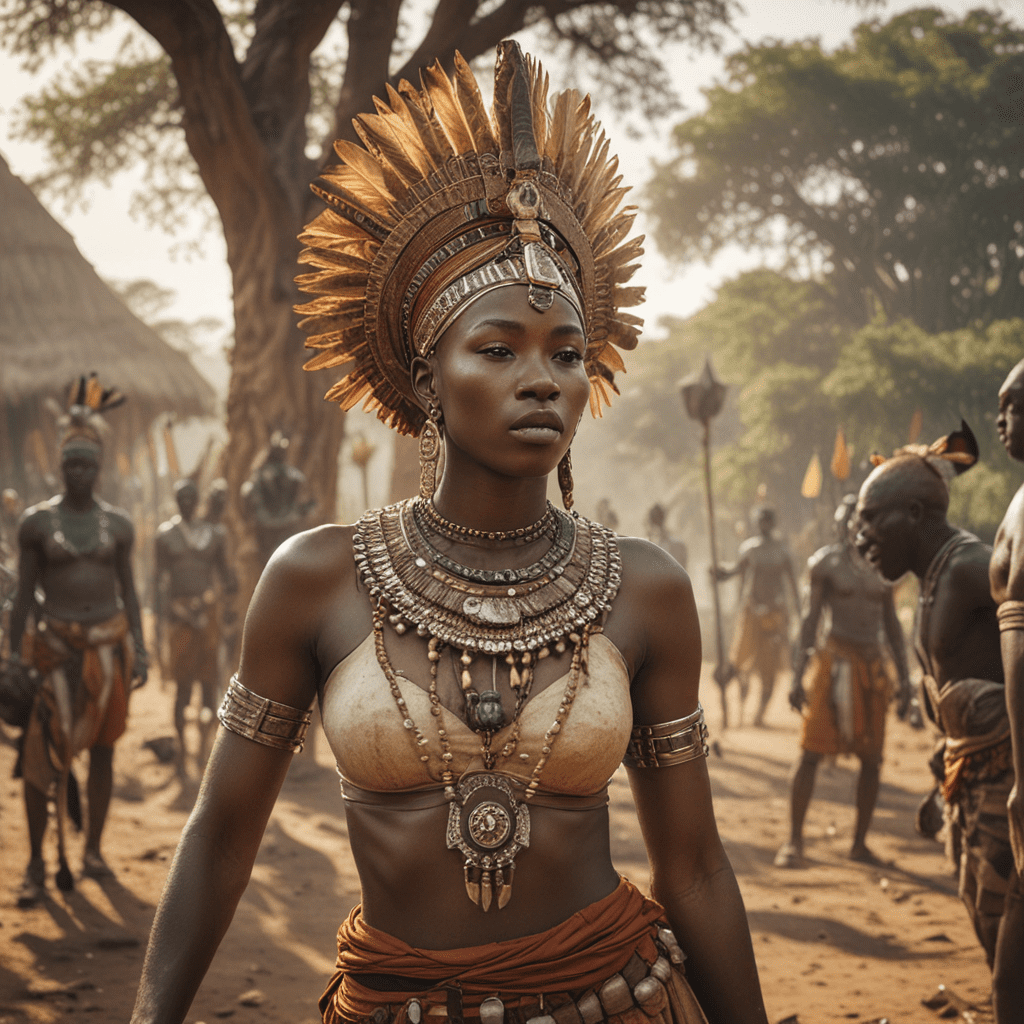I. Introduction
Colonialism, characterized by the political and economic domination of one nation over another, has profoundly impacted African societies, leaving a lasting imprint on their cultural heritage. Among the most significant aspects affected by colonialism is the realm of mythology. African mythological narratives, once an integral part of societal beliefs and practices, were subjected to suppression, fragmentation, and distortion during the colonial era.
II. Suppression and Elimination of Indigenous Beliefs
Colonial powers sought to establish control not only over the physical territory but also over the minds of the colonized peoples. This extended to the suppression of indigenous religious beliefs and practices. Sacred sites and objects were destroyed, and traditional rituals and ceremonies were prohibited. The goal was to eradicate the foundations of African cultural identity and replace them with foreign ideologies.
III. Imposition of Foreign Mythological Systems
Along with the suppression of indigenous beliefs, colonial powers introduced their own mythological systems. Christian and Islamic narratives were disseminated, often through missionary work. These foreign narratives, with their distinct deities, cosmologies, and moral frameworks, influenced the perception of African deities and spirits, leading to a syncretism of beliefs in some cases.
IV. Fragmentation and Distortion of Cultural Memory
Colonialism disrupted the transmission of traditional knowledge and oral traditions. The loss of traditional storytellers and the imposition of Western education systems eroded African cosmologies. The fragmentation and distortion of cultural memory made it difficult for future generations to fully grasp the richness and complexity of their mythological heritage.
V. Syncretism and Adaptation
Despite the suppression and distortion, African mythological narratives exhibited resilience. Elements of both indigenous and foreign beliefs blended, leading to the creation of hybrid narratives that reflected the evolving cultural landscape. Syncretism, the merging of different religious beliefs and practices, became a way for Africans to adapt and preserve their cultural identity while also incorporating new elements.
VI. Resistance and Revitalization
Despite the challenges faced during colonialism, African mythological narratives persisted and evolved. African scholars and writers took up the task of reclaiming and preserving indigenous narratives. They challenged colonial ideology by using mythology as a tool of resistance and empowerment.
VII. The Rise of Neo-Africanism
The post-colonial era witnessed a resurgence of interest in African cultural identity. Neo-Africanism, a movement that sought to reassert African cultural heritage, played a significant role in the revival of pre-colonial mythological traditions.
VIII. Decolonizing the Archive
The colonial era produced a wealth of records and archives that often reflected the biases and distortions of the colonizers. Decolonizing the archive involves re-evaluating these records and incorporating indigenous knowledge to reclaim lost narratives.
IX. Contemporary Expressions of African Mythology
African mythological narratives continue to influence contemporary African literature, art, and music. These narratives explore themes of identity, heritage, and resistance, offering a lens through which to understand the ongoing cultural and social transformations in Africa.
X. Conclusion
The influence of colonialism on African mythological narratives is complex and multifaceted. It involved suppression, fragmentation, and distortion, but also resilience, syncretism, and adaptation. Understanding this influence is crucial for appreciating the richness and diversity of African cultural heritage and for fostering a deeper understanding of the continent's past and present.
FAQ
Q: What is the significance of African mythological narratives?
A: African mythological narratives provide insights into the cultural beliefs, values, and practices of African societies. They offer a window into the collective imagination and worldview of the people and serve as a repository of historical and cultural knowledge.
Q: How did colonialism impact African mythology?
A: Colonialism suppressed indigenous beliefs, imposed foreign mythological systems, fragmented cultural memory, and led to the loss of traditional storytellers and oral traditions.
Q: What is syncretism in the context of African mythology?
A: Syncretism refers to the blending of African and Western beliefs and practices, resulting in the creation of hybrid mythological narratives that reflect the evolving cultural landscape.
Q: What is the role of contemporary African artists in preserving mythological narratives?
A: Contemporary African artists play a vital role in preserving mythological narratives through their works of literature, art, and music. They explore themes of identity, heritage, and resistance, using mythology as a tool to reclaim and reimagine African cultural traditions.



